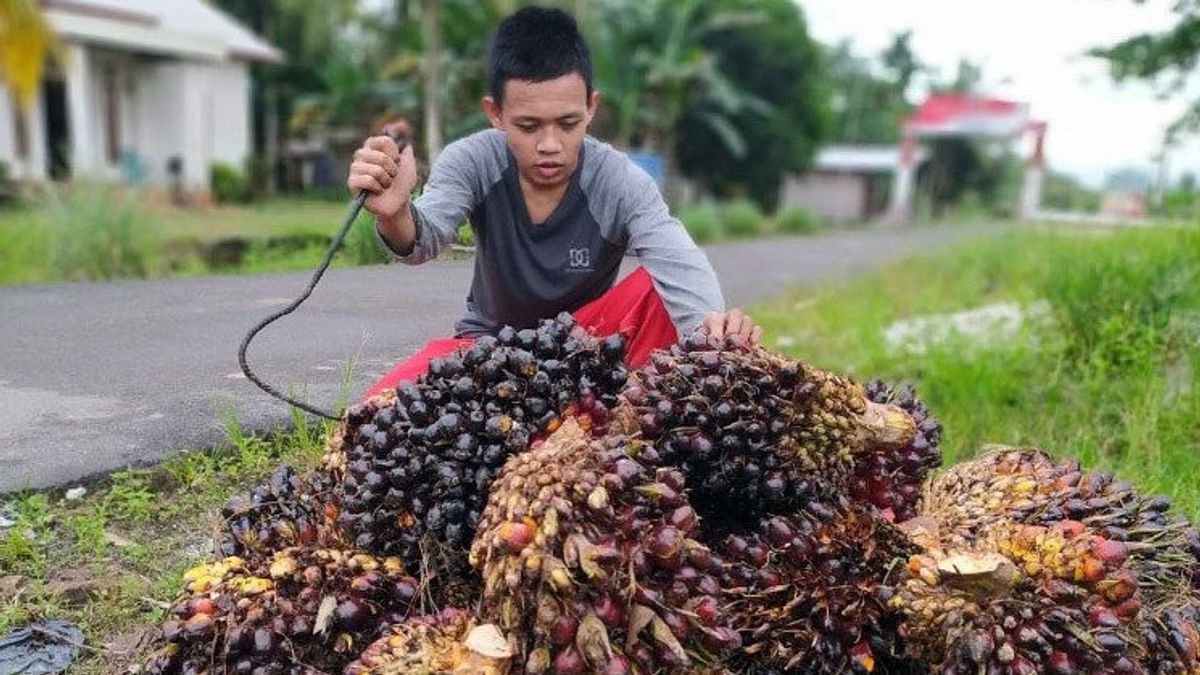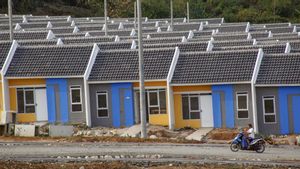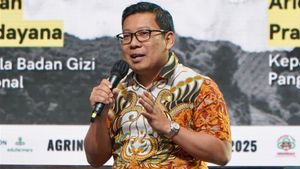JAKARTA - Head of the Special Work Unit (UKK) of the Applied Science Institute (LST) of the Faculty of Mathematics and Natural Sciences, University of Indonesia (FMIPA UI), Prof. Dr. Jatna Supriatna, said it was necessary to continue to develop innovations in the palm oil industry in order to deal with the world energy crisis.
"This is important considering that more than 50 percent of the world's palm oil production comes from Indonesia," said Jatna Supriatna in a statement quoted by Antara, Friday, September 23.
But unfortunately, said Jatna, royalties for the results of palm oil research from Indonesia are very small. This is because the majority of patent rights are foreign property.
For that, he said, FMIPA UI must be involved in research and innovation regarding palm oil. This is a challenge for us.
"We should be able to. Resources exist, existing facilities, knowledge exists, we just need to unite our teams. We from LST are trying to facilitate this," said Prof. Jatna, who is also a Professor of the Department of Biology of FMIPA UI.
The palm oil industry in Indonesia has a long history since 1848. Palm Oil thrives in Indonesia because Indonesia's natural conditions match oil trees.
Executive Director of the Indonesian Nabati Oil Industry Association (GIMNI), Sahat M. Sinaga, said the palm oil industry is experiencing many challenges and developments.
The challenges in the palm oil industry are related to the negative impact on nature and health which is also a global concern today, while the development of palm oil can be seen especially in the field of processing.
In general, palm oil is processed through the wet-proccess process using steam. This process leaves high chloride or chloride levels in palm oil.
Crude palm from Indonesia naturally contains carotenoid (provitamin A), tocopherol andtocotrienol (vitamin E), and phytosterol (depletion of cholesterol). However, conventional crude palm oil (CPO) can damage these ingredients.
Therefore, technology and the right process are needed to maintain beneficial content from palm oil so that it can be added value for palm oil. In 2022, PT Nusantara Green Energi (NGE) together with researchers introduced the processing process of palm oil through dry-process or steamless in Batanghari, Jambi.
According to Sahat, if sterilization is removed and replaced with dry-process, palm oil will be safer and healthier.
Palm oil is not only useful as cooking oil and alternative fuel, but can also be developed into other products, such as cosmetics, perfumes, determinants, paint, and even pharmaceutical products.
Sahat emphasized the importance of processing palm oil into products that can be utilized in various fields and by-products. This is because the more processes that are passed, the more the value of these goods will increase.
"The more we develop technology, product innovation, and applications, we can add added value up to six times. So much potential that has not been worked on and extracted from palm oil from upstream to downstream. We hope that UI can together become a funnel of palm oil research in Indonesia," said Sahat.
Research and innovation on palm oil needs to be developed continuously to increase the added value of palm oil. Through research and innovation products, FMIPA UI also contributes not only to the palm oil industry, but also to Indonesia.
The English, Chinese, Japanese, Arabic, and French versions are automatically generated by the AI. So there may still be inaccuracies in translating, please always see Indonesian as our main language. (system supported by DigitalSiber.id)













